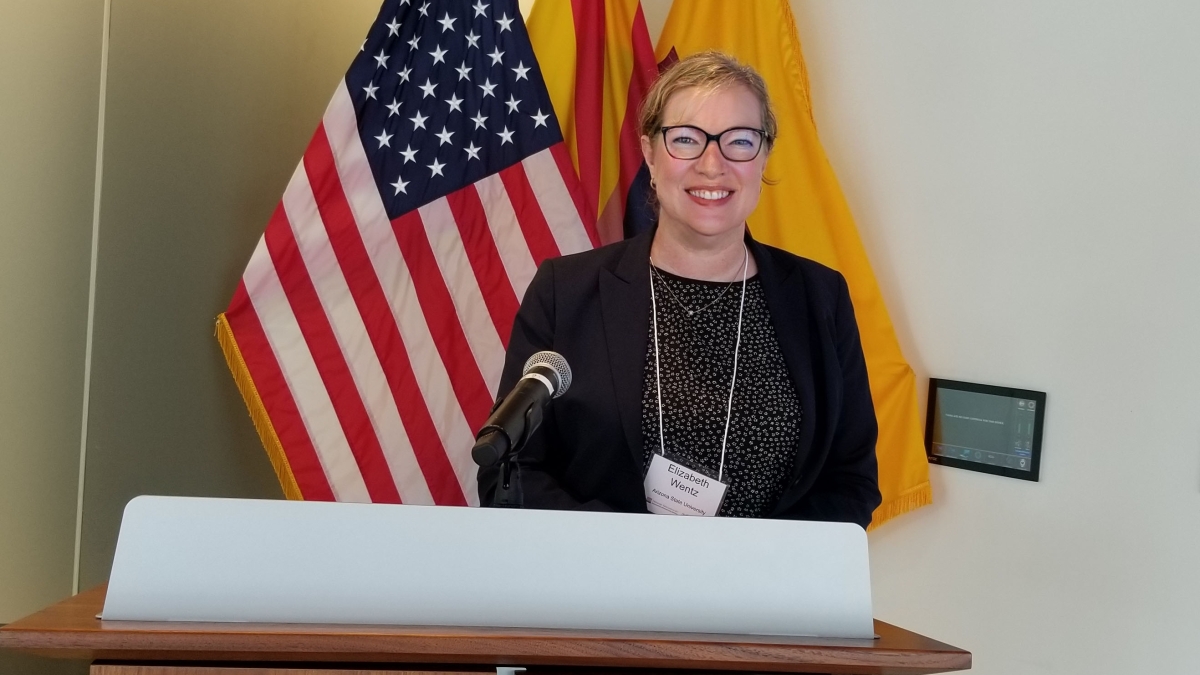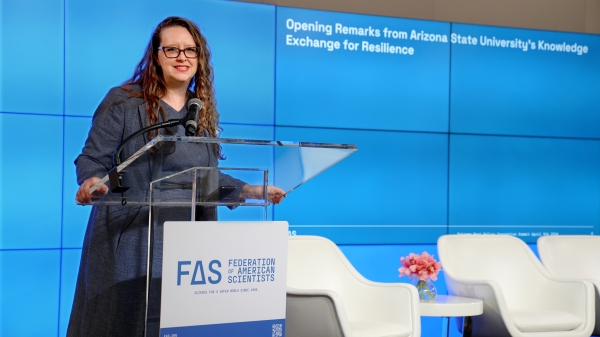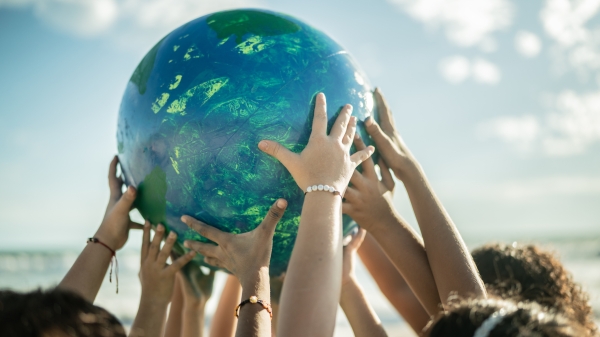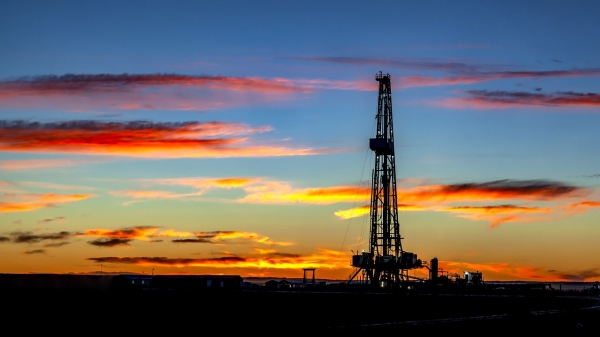TRELIS workshop in DC brings together women in the geosciences

Dean Elizabeth Wentz
For professionals involved in geospatial science — an area of study related to geography — it is standard operating procedure to help answer the question, “Where are we?”
But for women with careers in the geosciences, that question may have a profound personal implication, too, as they navigate their professional journey. Like other STEM professions, there is a shortage of women in geoscience, particularly in leadership positions.
The TRELIS 2019 workshop hosted at Arizona State University’s Barrett & O’Connor Washington Center on June 7-8 was an opportunity for women in geographic information science academic positions to focus on their career paths.
“The field is fairly computation intensive, so, much like other computer science-oriented fields, it does struggle to attract women and to retain them,” said Elizabeth Wentz, ASU’s dean of social sciences in the College of Liberal Arts and Sciences and a professor in the School of Geographical Sciences and Urban Planning. “They face the same challenge a woman in computer science might face: implicit bias and lack of access to the same types of resources.”
The purpose of TRELIS, funded by the National Science Foundation, is to bring together women in the geosciences to build leadership and to provide mentoring and networking. The June workshop was strategically scheduled for the weekend immediately prior to the UCGIS 2019 Symposium, which brings together academic professionals from around the country. UCGIS, the University Consortium for Geographic Information Science, is a nonprofit organization that creates and supports communities of practice for GIS science research, education and policy endeavors in higher education and with allied institutions.
ASU’s Washington center provided the perfect venue for a select group of 15 women from universities around the country for the TRELIS workshop.
“We wanted to create an opportunity for women to develop different professional development skills including a social network and an exchange of ideas,” said Wentz, who helped organize and direct the two-day workshop. “How do you negotiate? How do you manage conflict?”
This is the second of three NSF-funded workshops and the target this year, according to organizers, was early-career women. The workshops are held in association with the annual symposiums held by UCGIS. Participants for the workshop were selected based on their responses to a set of questions and their professional orientation. Fifteen women from across the country were selected from a pool of 45 applicants.
The U.S. Department of Labor has identified geospatial technology as a high-growth industry. While the federal government was one of the early adopters of GIS technology, state and local governments as well as utilities, telecommunications and transportation are now among the largest users of GIS/geospatial solutions.
The TRELIS workshop included two sessions on “Obstacles and Conflicts”, sessions on communications and language, work-life balance, setting priorities and planning and a panel discussion on career trajectories. Dawn Wright, chief scientist at Esri and a leading authority in the application of GIS technology to the field of ocean and coastal science, was the keynote speaker. Wright talked to the group about taking risks and gave a candid presentation of the challenges she has faced and the joy of working in the field of science.
Participants throughout the two-day work shop were “engaged, honest, raised important questions and expressed genuine interest in the activities" according to Wentz and her fellow organizers, Kate Beard from the University of Maine and Laxmi Ramasubramanian, a professor at the Hunter College of The City University of New York. They said the relationships the women form at the workshop don’t end when the conference concludes.
“The TRELIS fellows in 2018 paved the way for concrete steps to stay in touch,” Wentz said. “The UCGIS has put into place community circles where fellows can opt in to different topics. There is also a Facebook page to share events, questions and activities. Last year’s cohort set up regular web meetings to stay in touch. They will be eligible to apply for Carolyn Merry mini-grants to facilitate joint research and future events. We see this as just a starting point for increasing participation and inclusion of women in GIS.”
Wentz said the event is another way the Washington center is helping raise awareness about the work of the university and also helps the university do that work.
“People at this event come from universities across the U.S. so there will be nationwide visibility from this group that starts to ripple out,” she said. “And it helps to fulfill ASU’s charter with regard to inclusion. The whole purpose of the grant is to be more inclusive to women in a field that is disproportionately male.”
More Environment and sustainability

Arizona adapting to heat crisis with initiatives featured in ASU report
Arizona State University's Knowledge Exchange for Resilience, also known as KER, released its Recommendations Report on Extreme…

Celebrating Earth Day around the world
Originating in the United States in 1970, Earth Day is now celebrated worldwide. But even before it became an official day, many…

A run on fossil fuels: ASU professor says climate legislation could have unintended consequences
As concerns about climate change grow, policymakers are increasingly voicing support for stricter fossil fuel legislation. Their…